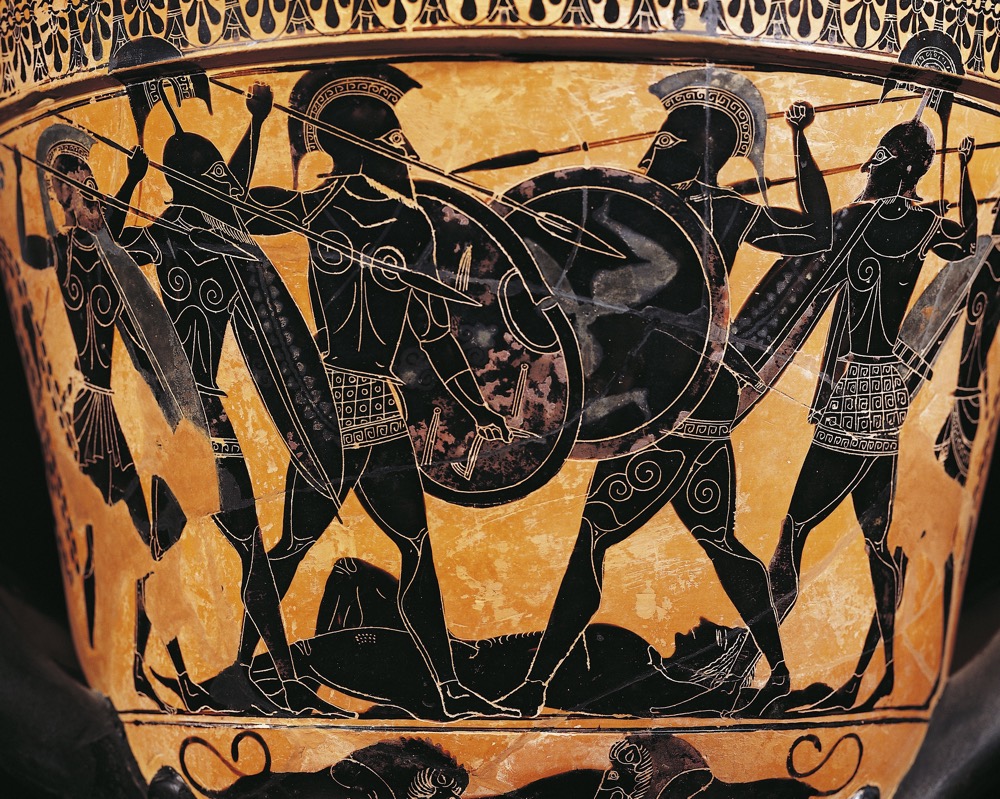Why Do Genes Suggest Most Men Died Off 7,000 Years Ago?

Modern men's genes suggest that something peculiar happened 5,000 to 7,000 years ago: Most of the male population across Asia, Europe and Africa seems to have died off, leaving behind just one man for every 17 women.
This so-called population "bottleneck" was first proposed in 2015, and since then, researchers have been trying to figure out what could've caused it. One hypothesis held that the drop-off in the male population occurred due to ecological or climatic factors that mainly affected male offspring, while another idea suggested that the die-off happened because some males had more power in society, and thus produced more children.
Now, a new paper, published May 25 in the journal Nature Communications, offers yet another explanation: People living in patrilineal clans (consisting of males from the same descent) might have fought with each other, wiping out entire male lineages at a time. [Image Gallery: Our Closest Human Ancestor]
That ratio of 17 females for every one male "struck us as being very extreme, and there must be another explanation," said senior study author Marcus Feldman, a population geneticist at Stanford University in California. According to their new explanation, the male population didn't take a nosedive, but rather the diversity of the Y chromosome decreased due to the way people lived and fought with each other. In other words, there weren't actually fewer males, just less diversity among the males.
Humans have 23 pairs of chromosomes that carry most of our genes. Of these, the 23rd pair is what determines our sex: Whereas females have two X chromosomes, males have one X chromosome and one Y chromosome.
Because offspring inherit one chromosome from each parent, genes usually get shuffled around, increasing the diversity across species. But the Y chromosome, having no female counterpart, doesn't get shuffled, so it stays pretty much the same from grandfather to father to son (save for any mutations that occur, which explains why the Y chromosome does differ among males).
War might've caused the Y chromosome bottleneck
To test their theory, the researchers conducted 18 simulations in which they created different scenarios for the bottleneck that included factors such as Y chromosome mutations, competition between groups, and death. Their simulations showed that warfare between patrilineal clans could have caused this so-called "Y chromosome bottleneck," because the members of each patrilineal clan would have very similar Y chromosomes to each other. So, if one clan killed off another, it would also slash the chance of that family's Y chromosome moving on to offspring.
Sign up for the Live Science daily newsletter now
Get the world’s most fascinating discoveries delivered straight to your inbox.
In the researchers' simulations in which patrilineal clans didn't exist, however, the bottleneck didn't occur.
What's more, there was no such bottleneck in the women of the time, as is shown by mitochondrial DNA — a type of DNA that's passed down only from mother to child.
"In that same group, the women could have come from anywhere," Feldman told Live Science. "They would've been brought into the group from either the victories that they had over other groups, or they could've been females who were residing in that area before."
As an example, he added, if you look at colonization throughout history, people generally "killed all the men and kept the women for themselves."
Monika Karmin, a population geneticist at the University of Tartu in Estonia who was not part of the new study, told Live Science that the "beauty of their study" is the way the researchers framed their hypothesis and demonstrated that "fighting clans are indeed likely to cause a drastic drop in male genetic diversity. [Gallery: Ancient Chinese Warriors Protect Secret Tomb]
"However, we do have to keep in mind that there is very little information on the actual societal organization from that time," said Karmin, who was the lead author of the 2015 study that first proposed the bottleneck. So, there could have been other "sociocultural" forces at play, she said.
The researchers did "careful computer simulations, whereas the previous papers had not," said Chris Tyler-Smith, an evolutionary geneticist at the Sanger Institute in the United Kingdom who was not involved with the study. "The assumption that [the cause of the bottleneck] was warfare is a reasonable one," especially given the time period, he added.
People were still living in small clans doing small-scale farming 5,000 to 7,000 years ago, a time right before people moved into larger societies and built large cities. It was a "transition between early farming using stone tools and later farming in societies using metal tools," Tyler-Smith told Live Science.
But after this bottleneck, "you see the start of societal organizations and the shift from small-scale societies to having cities and organizations of people into groups that are not so intent on maintaining the Y chromosome lineage," Feldman said. During this time, the male population bounced back, he added.
Normally, researchers focus on behavior that may have a genetic basis but not on behavior that influences genes, Feldman said. The new finding is "an example of what a cultural preference can do in changing the level of genetic variation."
Originally published on Live Science.

Yasemin is a staff writer at Live Science, covering health, neuroscience and biology. Her work has appeared in Scientific American, Science and the San Jose Mercury News. She has a bachelor's degree in biomedical engineering from the University of Connecticut and a graduate certificate in science communication from the University of California, Santa Cruz.









